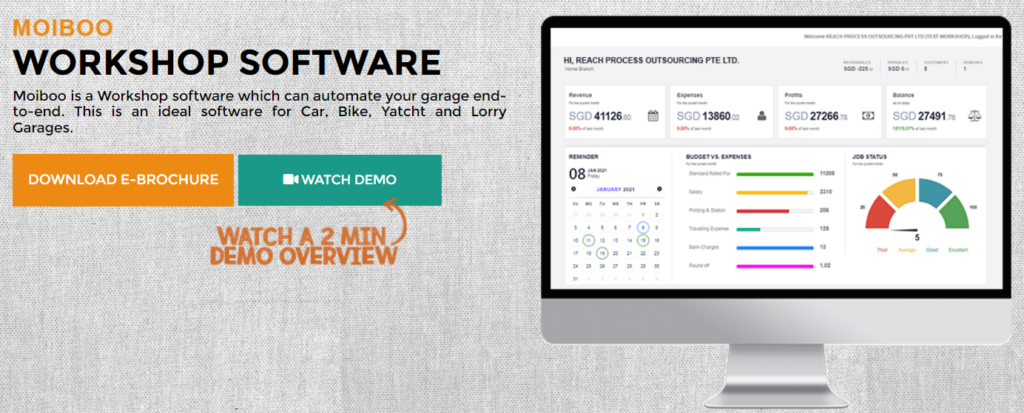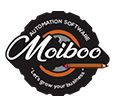Introduction:
Managing expenses effectively is crucial for any workshop, as it directly impacts profitability and financial stability. Workshop software, particularly Enterprise Resource Planning (ERP) systems, can revolutionize expense tracking by streamlining processes, enhancing accuracy, and providing valuable insights.
In this article, we will delve into the importance of tracking workshop expenses and explore how workshop software can simplify this task. We will guide you through the step-by-step process of leveraging workshop software to track expenses efficiently, optimize financial management, and drive business success.

Understanding the Significance of Expense Tracking in Workshops:
Tracking workshop expenses is vital for several reasons. Firstly, it allows workshop owners and managers to maintain a comprehensive overview of their financial health. Accurate expense tracking enables the identification of cost-saving opportunities, eliminates unnecessary expenses, and supports effective budgeting. Additionally, expense tracking ensures compliance with financial regulations and aids in preparing tax returns.
The Advantages of Workshop Software for Expense Tracking:
Implementing workshop software, especially ERP systems, brings numerous benefits to expense tracking. These solutions offer a centralized platform to record, categorize, and analyze expenses. Here are some advantages:
Streamlined Data Entry:
This software enables easy and efficient data entry, eliminating manual paperwork and reducing the likelihood of errors. It allows for quick recording of invoices, receipts, and other expense-related documents, which can be directly scanned or imported into the system.
Accurate Categorization:
It provides predefined expense categories or customizable options, facilitating accurate expense categorization. This categorization enhances reporting capabilities, enabling in-depth analysis of spending patterns and identification of cost drivers.
Integration with Other Systems:
Workshop software often integrates with other systems, such as accounting software and project management tools. This integration ensures a seamless flow of expense data, automates processes, and minimizes duplication of effort.
Approval Workflows:
It incorporates approval workflows, enabling systematic review and authorization of expenses. This ensures proper financial control and compliance with internal policies.
Step-by-Step Guide:
Tracking Workshop Expenses with Software:
To effectively track workshop expenses using workshop software, follow these steps:
Software Evaluation:
Research and select a workshop software solution that suits your specific needs. Consider factors such as cost, features, scalability, user-friendliness, and compatibility with existing systems.
Expense Category Setup:
Define expense categories relevant to your workshop, such as equipment purchases, raw materials, utilities, maintenance, employee wages, marketing expenses, and miscellaneous costs. Set up these categories within the workshop software to ensure accurate expense categorization.
Chart of Accounts: Create a comprehensive chart of accounts within the workshop software. Assign unique account codes to each expense category for easy tracking and reporting.
Data Entry:
Enter expenses into the software using various methods, such as manual data entry, importing data from spreadsheets, or integrating with other systems. Include essential details like vendor name, invoice number, date, and amount.

Categorization:
Assign the appropriate expense category to each transaction. This step facilitates accurate expense classification for future analysis and reporting.
Vendor Management:
Maintain a vendor database within the software, including relevant information such as contact details, payment terms, and tax identification numbers. This information streamlines payment processing and vendor analysis.
Approval Process:
Implement an approval workflow within the software to ensure proper review and authorization of expenses. Configure rules and notifications based on approval levels.
Project or Job Linking:
If your workshop operates on specific projects or jobs, link expenses to relevant project or job codes within the workshop software. This facilitates project-based expense tracking and profitability assessment.
Conclusion:
Efficient expense tracking is a fundamental aspect of managing workshop finances. Workshop software, particularly ERP systems, offers powerful tools to streamline and optimize expense-tracking processes. By leveraging workshop software, workshop owners and managers can benefit from centralized data management, accurate categorization, seamless integration, and robust reporting capabilities.
Following the step-by-step guide provided in this article, workshop owners can effectively track expenses, gain valuable insights into their financial performance, make informed decisions, and drive the success of their workshops. Embracing workshop software for expense tracking is a proactive step towards financial stability, improved profitability, and enhanced business operations.

If you are seeking workshop software that has been pre-approved for the PSG Grant, we recommend exploring Moiboo Workshop Software. This comprehensive solution is equipped with a diverse range of features specifically designed to streamline your business processes and boost overall efficiency.
To experience firsthand how Moiboo Workshop Software can bring value to your business, we encourage you to click here and request a free demo. For any additional information or inquiries, please feel free to reach out to us at +65 9895 1817.
FAQS:
What is workshop service management?
Workshop service management involves the systematic organization and coordination of service-related activities within a workshop or service center.
It encompasses tasks such as scheduling, job allocation, resource management, customer communication, and invoicing, aiming to optimize service delivery, streamline processes, and enhance customer satisfaction.
What is a workshop and its uses?
A workshop is a dedicated space or facility where individuals or groups engage in hands-on activities, learning, and collaborative work related to a specific craft, skill, or field. Workshops are versatile environments that serve various purposes such as training, skill development, problem-solving, idea generation, prototyping, and fostering creativity.
They provide a practical setting for individuals to acquire new knowledge, develop practical skills, collaborate with others, and bring ideas to life through hands-on experimentation and application.
why software is important for a workshop?
Software is important for workshops for several reasons. Firstly, it automates and streamlines various processes, such as inventory management, scheduling, invoicing, and customer communication, leading to improved efficiency and productivity. It reduces manual errors, saves time, and enables workshops to handle a larger volume of work effectively.
Additionally, workshop software provides better organization and accessibility of data, allowing for quick retrieval of information, analysis of key metrics, and informed decision-making. It facilitates effective collaboration and communication among team members, enhances customer experience through streamlined interactions, and enables workshops to adapt to changing market demands and technological advancements.
Overall, the software empowers workshops to operate more efficiently, deliver higher quality services, and stay competitive in the ever-evolving business landscape.
